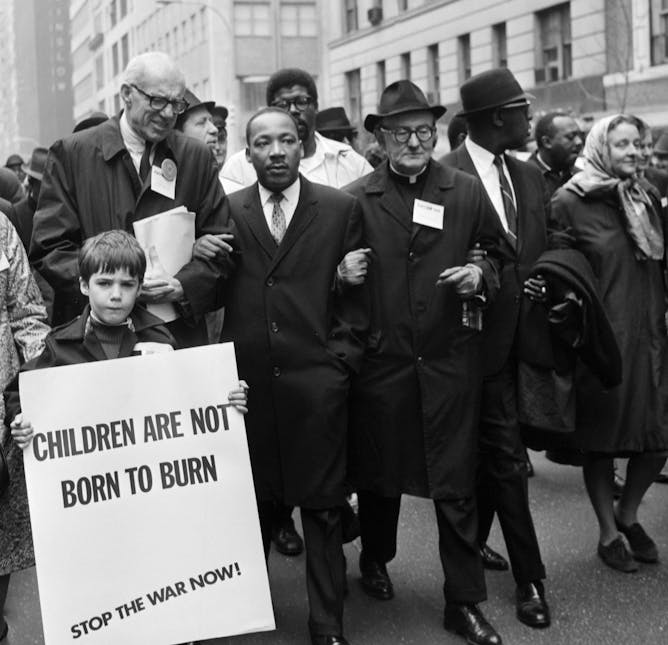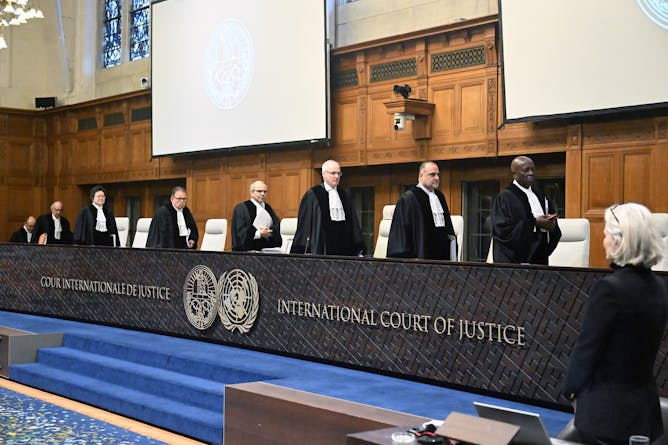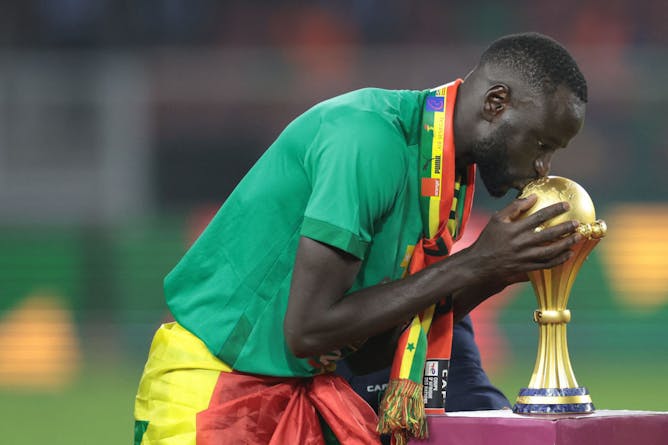|
As the number of U.S. soldiers fighting and dying in Vietnam continued to increase during the mid-1960s, Martin Luther King Jr. found himself in a tough spot with President Lyndon B. Johnson.
It was Johnson who had signed into law both the Civil Rights Act of 1964 and the Voting Rights Act of 1965. It was Johnson who orchestrated the Great Society programs that promised social uplift and racial equality. But LBJ was also at the heart of the escalation of the war.
Though his advisers urged him not to speak out against the war, King ultimately did, often and loudly. For King, “silence had become betrayal.” Hajar Yazdiha writes about King’s views on war − and what he might say about peace in the Middle East. “This is the story of the anti-war King who understood that violence begets violence and that the political courage to speak for peace is essential to democracy.”
|

Hajar Yazdiha, USC Dornsife College of Letters, Arts and Sciences
Rev. Martin Luther King Jr. knew the political consequences of speaking out against the Vietnam War − and he did it anyway.
|

Victor Peskin, Arizona State University
While the International Court of Justice lacks enforcement powers, it can issue orders that could heighten international pressure on Israel to curtail some of its offensive in Gaza.
|
|
|
-
Sarah Schiffling, Hanken School of Economics; Matthew Tickle, University of Liverpool
With the Panama Canal in drought and the Strait of Hormuz also vulnerable to Iran, global trade routes are under severe pressure.
-
Natasha Lindstaedt, University of Essex
The Houthis have taken over much of northern Yemen, since they stormed the capital, Sanaa in 2014.
-
Alemayehu Weldemariam, Indiana University
Somalia has demanded that a memorandum of understanding – which would see Ethiopia gain access to the Red Sea via a Somaliland port – be ripped up.
-
ManMohan S Sodhi, City, University of London
There have been so many problems with the 737 Max that the nuclear option may be the best way forward.
-
Mandy Conrad, Mississippi State University
Medications can play an important role in weight management, but not at the expense of overall nutrition. And healthy lifestyle habits are also key.
|
|

Chuka Onwumechili, Howard University
Increased prize money, several new broadcasting deals and the biggest names in African football will define the 2024 action.
|